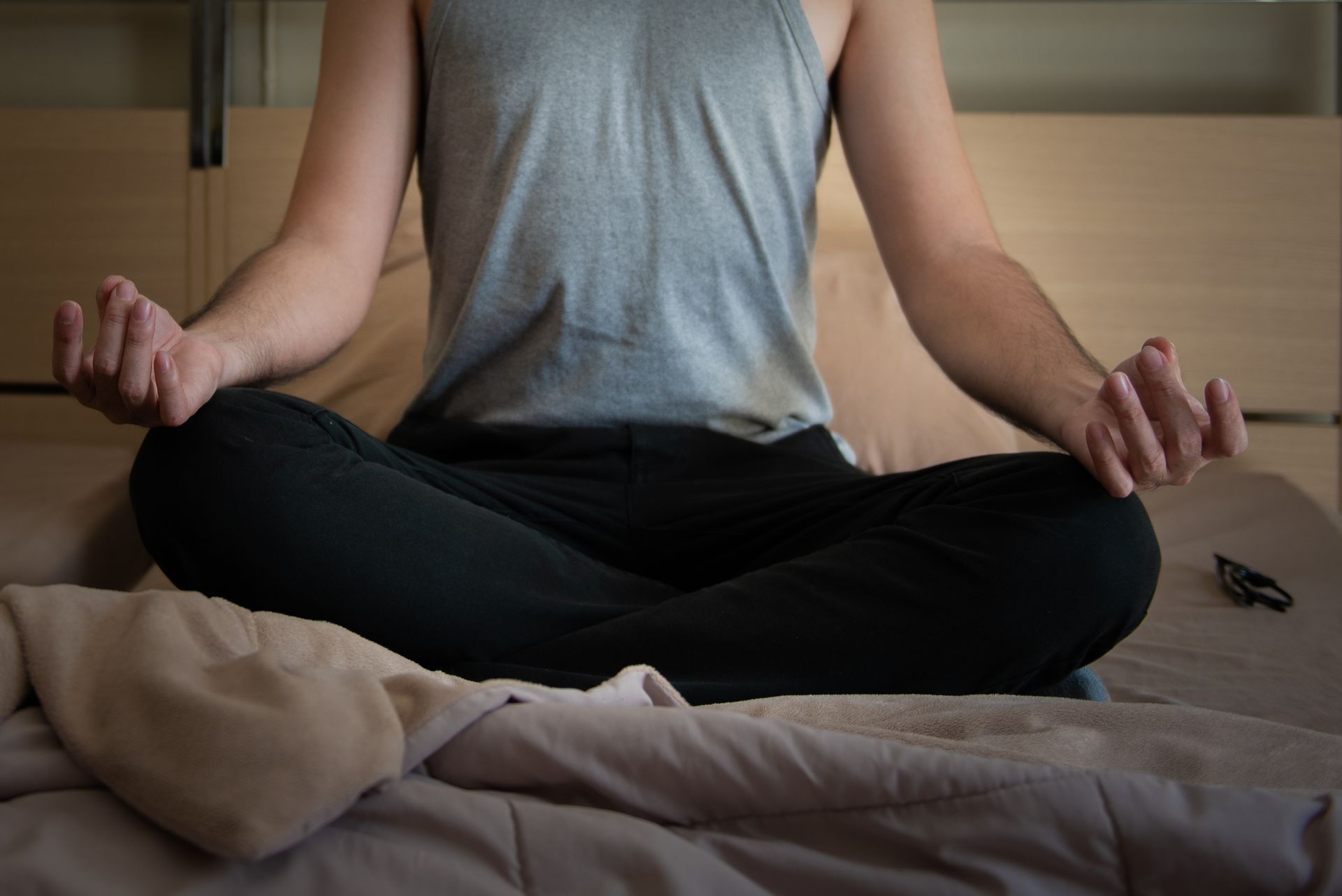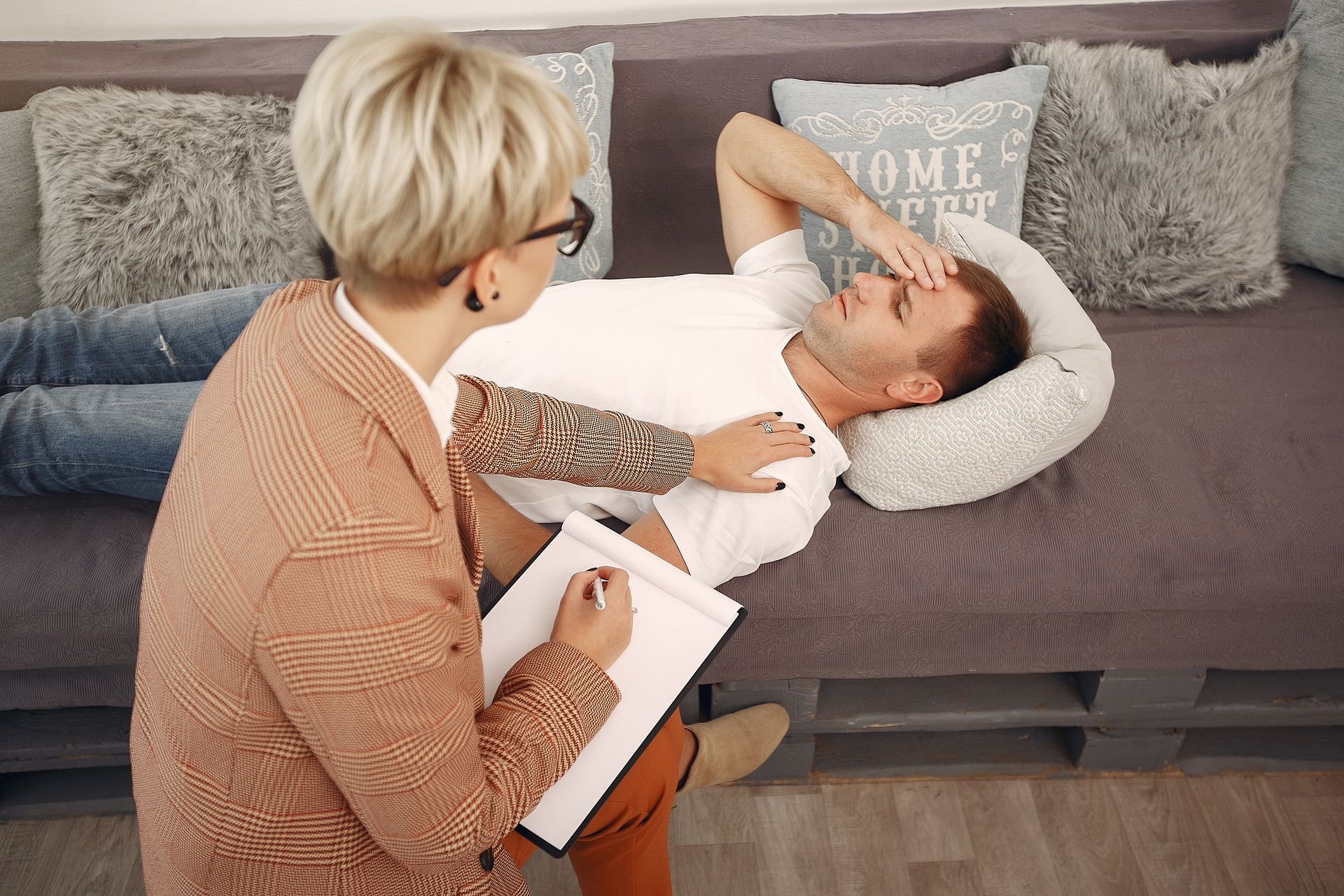Insomnia Treatment at Modern Psychiatry
Finally Get the Sleep You Deserve
If you're reading this at 3 AM because you can't sleep again, you know how exhausting insomnia can be. It's not just about being tired – when you can't sleep properly, everything else in your life gets harder. Your mood suffers, your concentration tanks, and even simple tasks feel overwhelming. You might find yourself dreading bedtime because you know you'll just lie there staring at the ceiling.
At
Modern Psychiatry, we understand that good sleep isn't a luxury – it's essential for your mental and physical health. We've helped countless people break the cycle of sleepless nights and get back to feeling rested and refreshed.
What Insomnia Really Looks Like
Insomnia isn't just about having trouble falling asleep, though that's certainly part of it for many people. You might fall asleep fine but wake up multiple times throughout the night. Or maybe you wake up way too early and can't get back to sleep, even though you're still tired.
Some people experience acute insomnia that lasts a few days or weeks, often triggered by stress, life changes, or illness. Others deal with chronic insomnia that goes on for months or even years. Both types can seriously impact your quality of life.
You might notice that you feel irritable during the day, have trouble concentrating at work, or find yourself falling asleep at inappropriate times. Your relationships might suffer because you're always tired and cranky. Physical symptoms like headaches, muscle tension, and digestive issues are common too.
Many people with insomnia also develop anxiety around sleep itself. You start worrying about whether you'll be able to sleep, which makes it even harder to relax and fall asleep. It becomes this frustrating cycle where the fear of not sleeping keeps you awake.
Understanding What Causes Sleep Problems
Insomnia can have many different causes, and figuring out what's keeping you awake is important for finding the right treatment. Sometimes it's related to other mental health conditions like anxiety or depression. Your mind might race with worries when you try to sleep, or depression might be messing with your sleep patterns.
Medical conditions can also interfere with sleep. Things like chronic pain, acid reflux, sleep apnea, or hormonal changes can all disrupt your rest. Certain medications, too much caffeine, or an irregular schedule can also be culprits.
Sometimes insomnia develops because of poor sleep habits that seemed harmless at first but gradually made sleep more difficult. This might include using your bedroom for activities other than sleep, eating large meals close to bedtime, or spending too much time on screens before bed.
For many people, insomnia is caused by a combination of factors rather than just one thing. That's why treatment often involves addressing multiple areas of your life and health.
How We Help You Sleep Better
We believe in going beyond quick fixes when it comes to sleep problems. While medication certainly has its place, our focus is on understanding what's disrupting your sleep and addressing those underlying issues directly.
Our process begins with a thorough exploration of your sleep habits, daily routines, stress factors, and overall health picture. This comprehensive assessment allows us to identify the specific contributors to your insomnia and create a personalized treatment strategy.
Sleep education forms a fundamental part of most treatment plans. We'll guide you through evidence-based practices that can significantly improve your sleep quality - optimizing your bedroom environment, developing effective pre-sleep routines, and identifying behaviors that may be interfering with rest.
Cognitive behavioral therapy for insomnia (CBT-I) has shown remarkable effectiveness for sleep disorders. This therapeutic approach helps you recognize and modify the thought patterns and behaviors that perpetuate sleeplessness. You'll develop practical skills for relaxation, managing an overactive mind, and reducing sleep-related anxiety.
When medication is warranted, we view it as one component of a broader strategy. Our preference is to use pharmaceutical support temporarily while you develop sustainable sleep practices that will benefit you long-term.
When Mental Health and Sleep Problems Overlap
Sleep and mental health are closely connected. Depression and anxiety can cause insomnia, but insomnia can also worsen depression and anxiety. It's often hard to tell which came first, but the good news is that treating one often helps the other.
If you're dealing with both sleep problems and mental health challenges, we'll address both as part of your treatment plan. Sometimes getting your sleep back on track can significantly improve your mood and anxiety levels. Other times, treating underlying depression or anxiety is the key to better sleep.
We also understand that some medications used for
mental health conditions can affect sleep, either making you too drowsy or keeping you awake. We'll work with you to find medications that help your mental health without disrupting your sleep.
Practical Sleep Solutions
Good sleep often comes down to creating the right environment and routine. Your bedroom should be a place that signals to your brain that it's time to rest. This means keeping it cool, dark, and quiet, and using it primarily for sleep.
Establishing a consistent sleep schedule helps regulate your body's internal clock. This means going to bed and waking up at roughly the same time every day, even on weekends. It might feel restrictive at first, but consistency is one of the most powerful tools for better sleep.
Managing stress and worry is crucial for good sleep. We'll help you develop strategies for dealing with racing thoughts at bedtime, whether that's through relaxation techniques, journaling, or other approaches that work for you.
Flexible Treatment Options
We know that when you're exhausted from lack of sleep, the last thing you want to do is travel to appointments. That's why we offer both in-person and telehealth options. If we have a physical location in your state, you can choose whatever format works best for you. For states where we don't have offices, we provide complete care through secure telehealth appointments.
Many of our insomnia patients appreciate the convenience of telehealth because they can discuss their sleep issues from the comfort of their own bedroom, and they don't have to worry about driving when they're tired.
Frequently Asked Questions
How many hours of sleep do I actually need?
Most adults need 7-9 hours of sleep per night, but individual needs can vary. The important thing is whether you feel rested and alert during the day. If you're consistently getting less than 6 hours or need more than 10 hours to feel okay, that's worth discussing with a healthcare provider.
Is it okay to take sleeping pills every night?
While sleeping medications can be helpful short-term, they're not usually recommended as a long-term solution. Many can become less effective over time or create dependency. We prefer to focus on addressing the underlying causes of insomnia and developing sustainable sleep habits.
Will my insomnia go away on its own?
Some cases of acute insomnia resolve when the triggering stress or situation improves. However, chronic insomnia often requires treatment to break the cycle. The longer insomnia goes untreated, the more it can become a habit that's harder to change.
Can exercise help with sleep problems?
Yes, regular exercise can significantly improve sleep quality. However, timing matters – vigorous exercise close to bedtime can actually keep you awake. We'll help you figure out the best exercise routine to support your sleep.
What if I've tried everything and nothing works?
When people tell us they've "tried everything," we usually find there are still stones left unturned. Maybe there's a health issue flying under the radar, or your medications are messing with your sleep in ways you didn't realize. Sometimes anxiety or depression are the real culprits, but they're not being treated properly. We're pretty good at playing detective and finding the missing piece of the puzzle.
Ready to Finally Get Some Real Sleep?
Give Modern Psychiatry a call and let's figure out what's been keeping you up all these nights.



